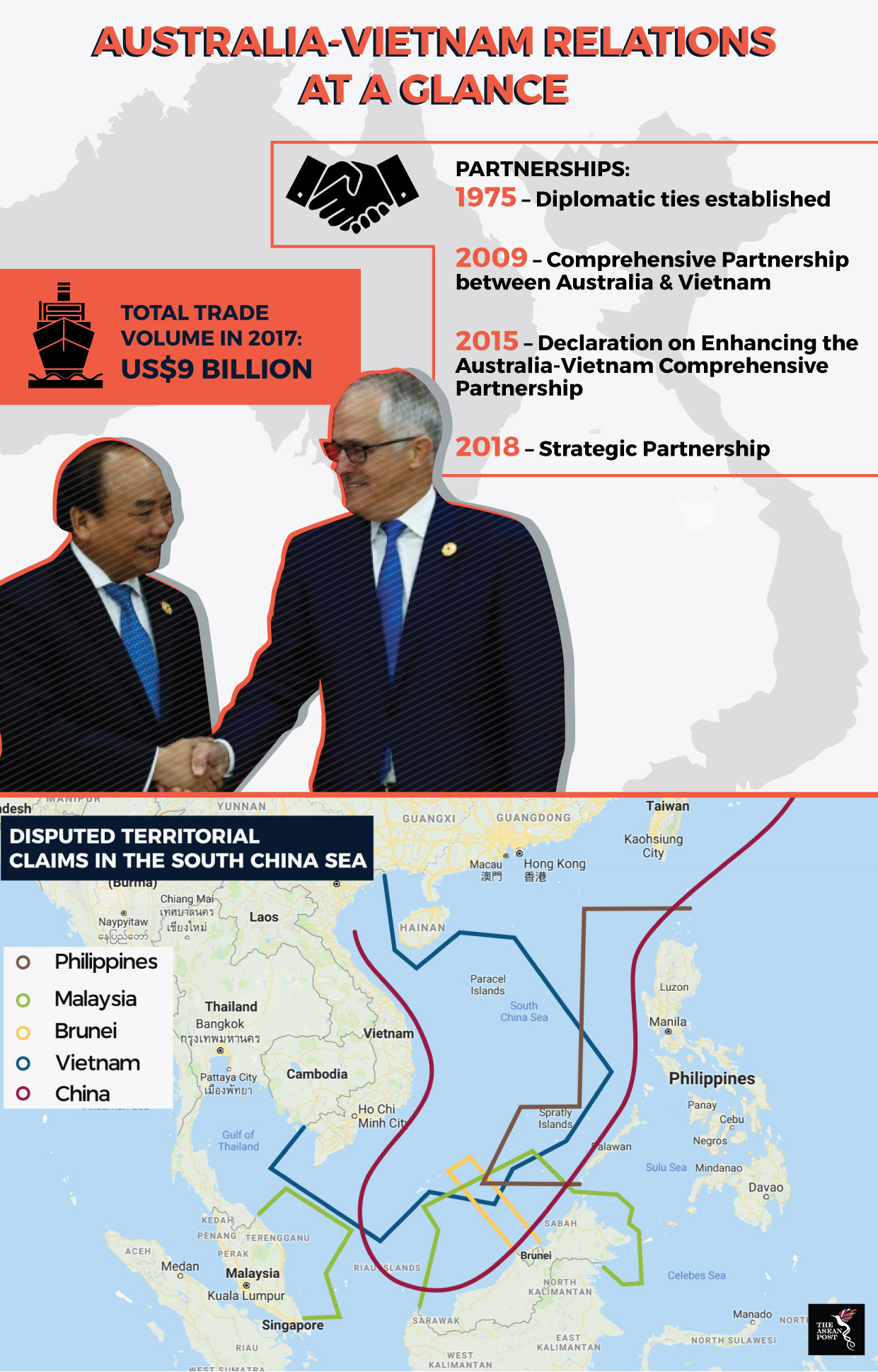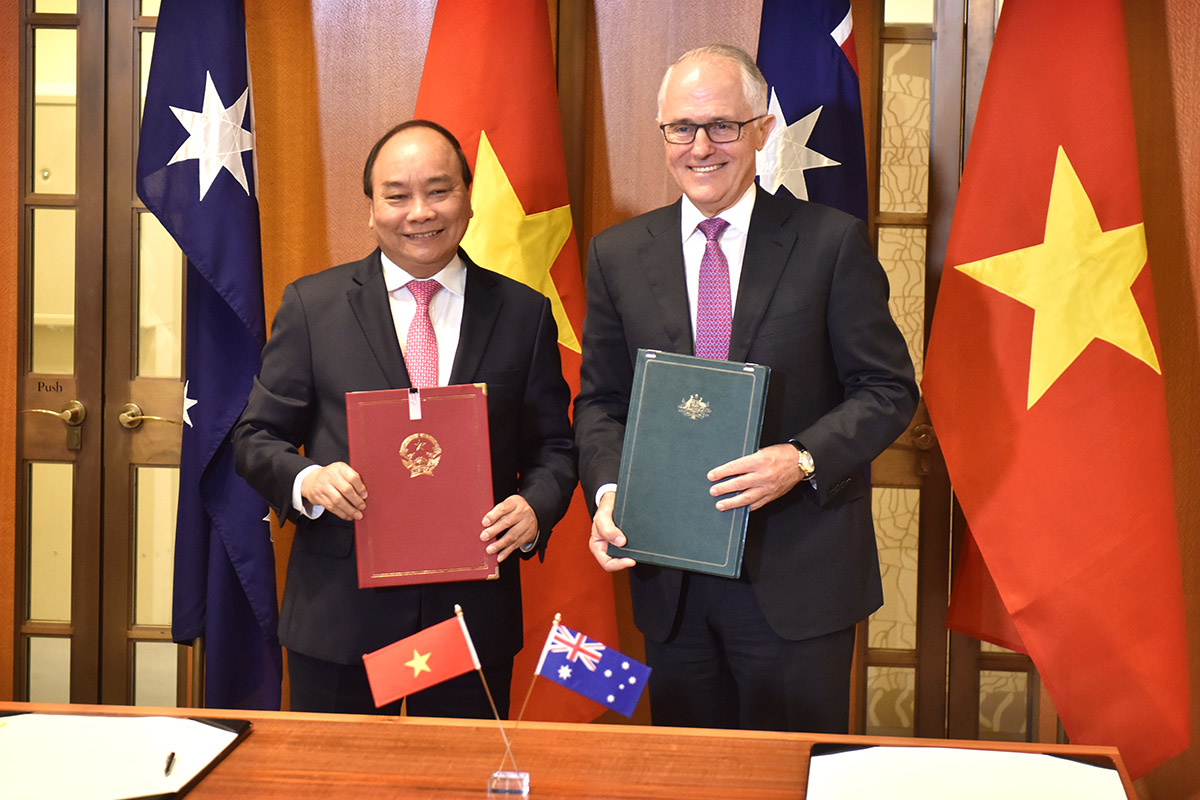Vietnam and Australia’s strategic partnership marks a new chapter in their 45-year relationship and could help bolster each country’s stand on the South China Sea dispute.
The strategic partnership deal was signed during Vietnamese prime minister, Nguyen Xuan Phuc’s visit to Australia ahead of the ASEAN-Australia Special Summit on 15 March. Following from that, the two countries will send their foreign affairs and defence ministers for annual bilateral talks, alongside conducting trade-related meetings.
The two countries’ bilateral trade relationship has developed significantly since the two nations established a Comprehensive Partnership in 2009, followed by an Enhanced Partnership in 2015. Bilateral trade between the two countries continues to grow at an annual rate of 7%. Meanwhile, trade volume between the two countries stood at US$9 billion in 2017.
Following the new partnership, Phuc has said that he anticipates higher investments to come from Australia this year, especially in infrastructure development. Vietnam’s lack of infrastructure is likely to pose challenges in maintaining its currently strong growth trajectory over the long term.
South China Sea dispute
What’s more pressing for both countries is the ongoing South China Sea dispute, for which talks to finalise a binding ASEAN code of conduct are still in the pipeline. Singapore’s prime minister, Lee Hsien Loong, noted in March that the issue was a complex one requiring time to resolve.
Although Vietnam and Australia both believe in the peaceful settlement of the South China Sea dispute, they are each not likely to confront their largest trading partner at sea.
“With the policy, Vietnam can build up some kind of counterbalance against China in the case of the absence of American presence in this region,” commented Trung Nguyen, dean of international relations at the Ho Chi Minh University of Social Sciences and Humanities on the new strategic partnership.
“Even though Australia is a second-tier power, in some sense, they can make up for the US in some aspects when the US is going back on an America-first policy,” he added.

In fact, Vietnam is said to be diversifying its sources of foreign support as much as possible, in a bid to protect its offshore energy exploration efforts, and fishing activity, on top of sovereignty claims.
“No single state can afford to deal with these challenges alone. Peace and prosperity in Southeast Asia depend largely on the ASEAN Community’s credibility,” said Phuc during a visit to Australia prior to the ASEAN-Australia Special Summit held there recently.
China was most recently reported to have conducted larger-than-usual military exercises in the South China Sea. Images captured by satellite showed at least 40 ships and submarines flanking a single aircraft carrier sailing in line formation across the Taiwan Strait.
Australia and China have had their fair share of spats concerning the region. Australia let six of its warships sail in the South China Sea late last year, led by a single carrier. This displeased China, whose navy commander Shen Jinlong commented that “…this does not accord with the consensus reached by the leaders of the two countries.”
Australia, too, may be trying to change its tone regarding China after reports emerged alleging that some Australian universities in receipt of Chinese funding subsequently curtailed their research concerning China. Spurred by these reports, Australia is currently debating new laws to criminalise foreign political donations and espionage, Reuters reported in March.
If anything, Vietnam and Australia’s strategic partnership will also likely force both to revisit old differences between themselves, not least of all their opposing stances on democracy and human rights. Yet this time, the fact that there may be more pressing issues surrounding them may garner a greater maturity in handling such challenges, for now and for the near future.
